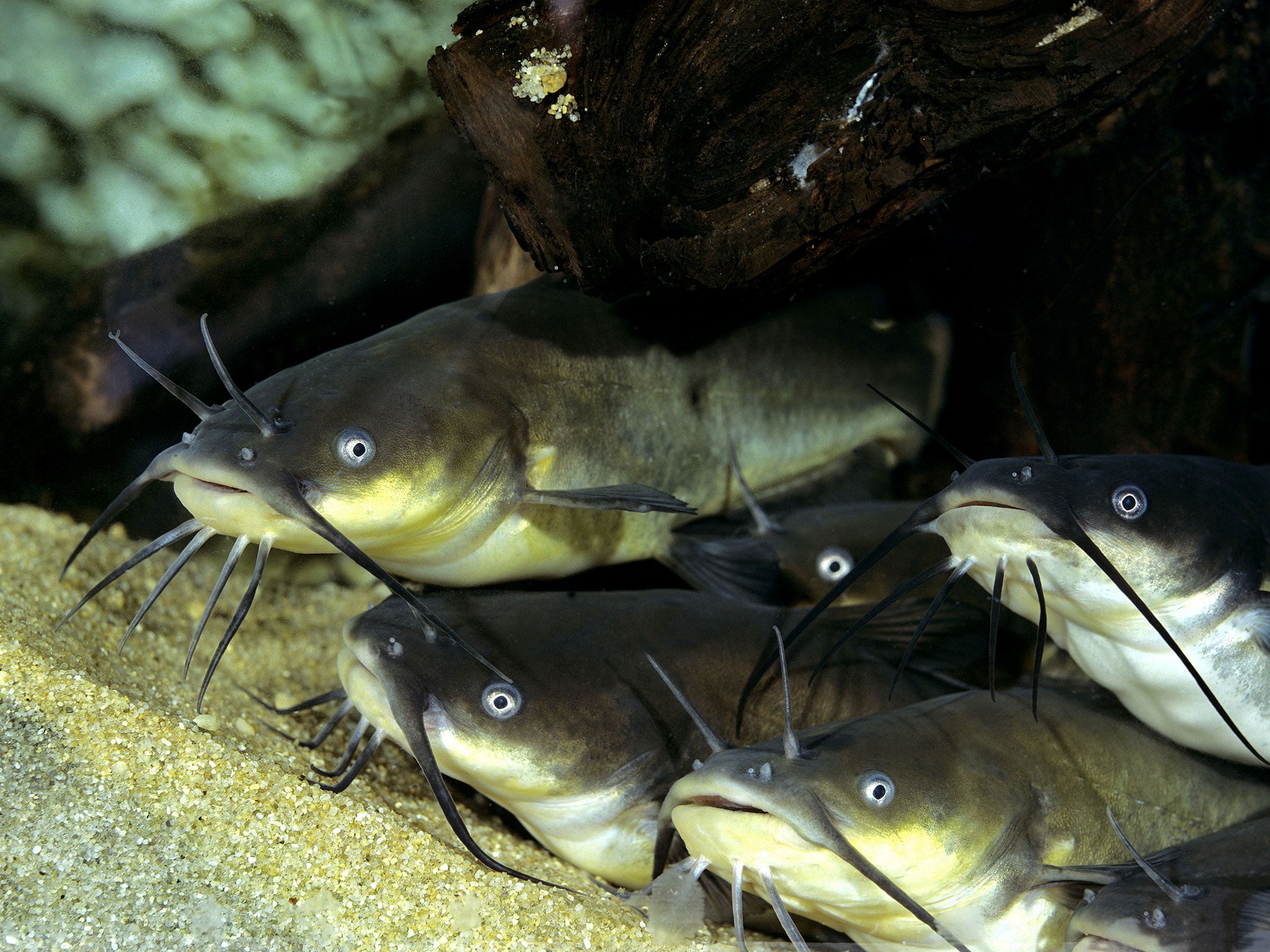Alien species in UK could cause an 'environmental catastrophe' for British rivers
Invasive species impact on the biodiversity of Britain by eating native species as well as affecting human health and the economy

Your support helps us to tell the story
From reproductive rights to climate change to Big Tech, The Independent is on the ground when the story is developing. Whether it's investigating the financials of Elon Musk's pro-Trump PAC or producing our latest documentary, 'The A Word', which shines a light on the American women fighting for reproductive rights, we know how important it is to parse out the facts from the messaging.
At such a critical moment in US history, we need reporters on the ground. Your donation allows us to keep sending journalists to speak to both sides of the story.
The Independent is trusted by Americans across the entire political spectrum. And unlike many other quality news outlets, we choose not to lock Americans out of our reporting and analysis with paywalls. We believe quality journalism should be available to everyone, paid for by those who can afford it.
Your support makes all the difference.Five of Europe’s deadliest freshwater species are now in UK waters wreaking havoc on the environment, a Cambridge University study has warned. At least 10 more are expected in the next half-decade.
Invasive species impact on the biodiversity of Britain by eating native species as well as affecting human health and the economy. Many originate from the Black, Asov and Caspian seas around Turkey and Ukraine. Scientists worry that some may already be in Britain, but as yet undiscovered.
Fears have now been raised by the discovery of the quagga mussel in a reservoir near Heathrow. The molluscs, originally from Ukraine, were identified as the single greatest potential threat to the UK’s wildlife of any alien species in 2013. They have now arrived.
Besides affecting water quality, they also disrupt water supplies by blocking pipes and causing flooding. Their discovery has added to calls from MPs earlier this year for new laws to combat the problem of alien species, which the European Environment Agency estimates costs EU countries £9.9bn a year.
Researchers say that, with at least 10 other species firmly established in Dutch ports, Britain could be close to an “invasional meltdown” . They include black bullhead fish and round goby fish, which have spread from the Black Sea and threaten to arrive in the UK.
Others on the watchlist include a giant “killer” shrimp that eats native insect larvae, and native shrimps; as well as isopods, which consume algae, detritus and plants, and so could affect food availability to native invertebrates.
The study, published today in the Journal of Applied Ecology, has identified four rivers most prone to freshwater invasions and calls for greater monitoring in a bid to avoid “environmental catastrophe”. The lower reaches of the Ouse, Thames, Severn and Broadlands were particularly vulnerable from the ballast water carried in ships and ornamental garden plants that escape.
Dr David Aldridge, the co-author, from Cambridge University’s Department of Zoology, said: “In some parts of Britain, the freshwater community looks more like the Caspian Sea. The Norfolk Broads, for example, typically viewed as a wildlife haven, is actually dominated by Ponto-Caspian zebra mussels and killer shrimps in many places.”
Freshwater invaders
The black bullhead fish Not present in UK yet. Spreading via fish farms. Uproots plants and makes clear water lakes more muddy.
The round goby fish A fish from the Black Sea that “eats everything”.
The red swamp crayfish In the UK in several places. Carries a fungus that kills native species.
The water milfoil An invasive plant from South America already in the UK. Blocks canals, reduces light, blocks boats, takes nutrients, smells.
Ponto-Caspian mysid A shrimp that feeds on algae, leaves and some insect larvae. By increasing the rate at which leaves break down, its feeding can affect the way, and speed, at which energy enters the food chain.
Join our commenting forum
Join thought-provoking conversations, follow other Independent readers and see their replies
Comments